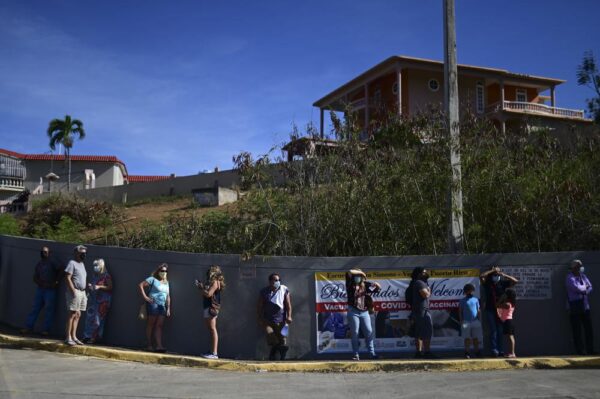Judge Strikes Down Unconstitutional “Fake News” Law in Puerto Rico
The law would have made it a crime to share information the government deemed false about emergencies in Puerto Rico, including the COVID-19 pandemic and hurricanes
SAN JUAN, Puerto Rico — In an important victory for press freedom and freedom of speech, a U.S. federal district court has granted the American Civil Liberties Union’s request to strike down a Puerto Rico law that made it a crime to knowingly raise a “false alarm” about public emergencies, holding that “[t]he watchdog function of speech is never more vital than during a large-scale crisis.”
The court ruled that the law violated the First Amendment because its broad sweep created a danger of partisan abuse or selective enforcement, enabling the government to suppress or chill speech that contradicts its official narrative. “[I]nstead of criminalizing speech,” the court observed, “the Legislature could simply have required the Government to use its multiple communications platforms to present a complete and accurate description of the facts” relating to emergencies in Puerto Rico.
“This is a landmark victory for press freedom,” said Brian Hauss, senior staff attorney with the ACLU’s Speech, Privacy, and Technology Project. “We are glad the court recognized that transparency, rather than censorship, is the key to public safety in a free and democratic society.”
The ACLU and the ACLU of Puerto Rico argued that Puerto Rico’s law violated the First and 14th Amendments because its vague terminology and broad sweep gave people far too little guidance on what speech may constitute a crime, and the government far too much discretion in deciding whom to prosecute.
“This win sends an unequivocal message that, in Puerto Rico — where transparency, accountability, and oversight is all but nonexistent — the press cannot be silenced,” said William Ramirez, executive director of the ACLU of Puerto Rico.
The law threatened to chill reporting on the COVID-19 crisis and other emergencies, because journalists risked prosecution if the government disputed the accuracy of their reporting. Those found in violation of the law could face up to three years in jail and a fine of up to $5,000.
“The declaration of a ‘state of emergency’ must never be used to promote censorship and repression,” said Fermin Arraiza, legal director of the ACLU of Puerto Rico. “This is an important victory for journalists in Puerto Rico and across the United States.”
The ACLU and the ACLU of Puerto Rico filed the lawsuit on behalf of two journalists, Sandra Rodríguez Cotto and Rafelli González Cotto, who feared that the laws would be used to punish them for their reporting on public emergencies, especially reporting that reflects negatively on the government.
“No journalist in Puerto Rico should allow undue government interference to restrict the right to freedom of speech that is enshrined in both the federal and Puerto Rican constitutions, much less when a state of emergency is declared and in place,” said Rafelli González Cotto, a plaintiff in the case. “False information can be fought only with true information, not with threats of imprisonment and large fines under the criminal law.”
Sandra Rodriguez Cotto noted that she had already faced intimidation for attempting to report the truth when she was denounced by a former governor’s chief of staff after she disputed the plausibility of the government’s official death toll from Hurricane Maria. It eventually emerged that the hurricane claimed more than 3,000 lives, instead of the 64 deaths initially reported by the government.
“As journalists, our sole duty is to inform the public,” said Sandra Rodríguez Cotto, a plaintiff in the case. “Let this case serve as a reminder that we must be vigilant in defending the freedom of the press from any attempt to obstruct the public’s access to information.”
The court’s ruling is available here.
Stay informed
Sign up to be the first to hear about how to take action.
By completing this form, I agree to receive occasional emails per the terms of the ACLU's privacy statement.
By completing this form, I agree to receive occasional emails per the terms of the ACLU's privacy statement.


